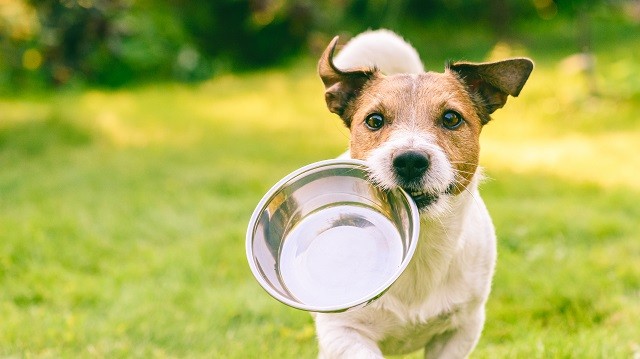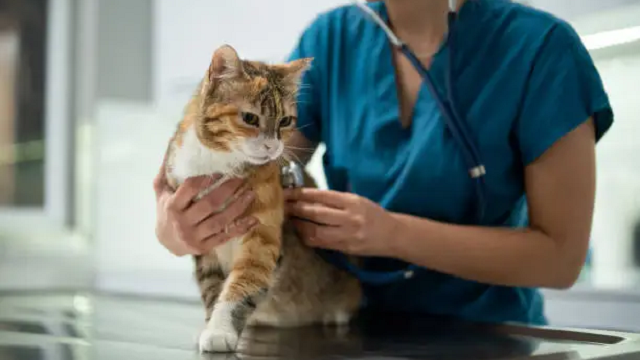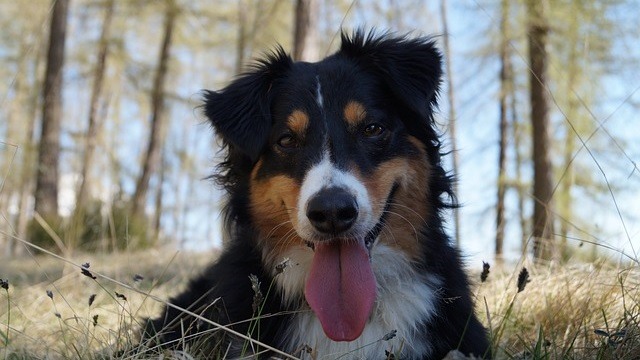How Long Can A Dog Go Without Water?
Dogs require water to survive – without it, they can quickly become dehydrated. But how long can a dog go without water until problems occur?
In certain situations, it is not always possible to provide water to our furry friends, such as when traveling or during emergencies. Let’s take a look at how much water dogs need, and discuss how to keep your dog hydrated and healthy.
- Dogs can survive without water for 3-5 days, but dehydration occurs within hours, especially in heat.
- Signs of dehydration include dry mouth, lethargy, sunken eyes, and decreased urination.
- Most dogs need about 1 ounce of water per pound of body weight daily, more in hot weather.
- During exercise, offer water every 15-20 minutes to prevent dehydration and health complications.
- Monitor hydration levels and consult a veterinarian if signs of dehydration appear.
How Long Can A Dog Go Without Water?
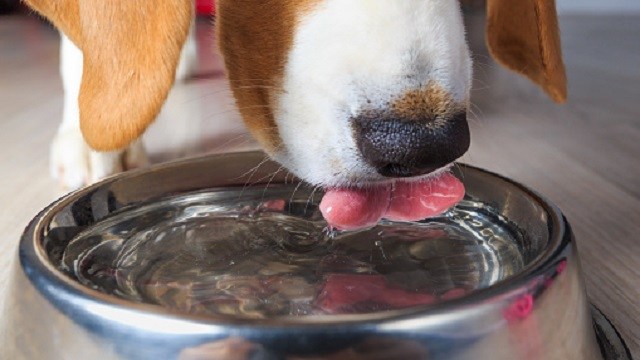
The amount of time a dog can go without water depends on several factors, such as their size, age, activity level, and the environment they are in. Generally, a healthy adult dog can survive without water for approximately 3-5 days, but it’s important to note that this is only under extreme circumstances.
In reality, dogs must have access to clean drinking water at all times, especially during hot weather or when they are exercising. Prolonged dehydration can lead to serious long-term and potentially fatal health complications, including kidney failure and heat stroke.
If you are ever unsure about your dog’s hydration levels, it’s best to consult with a veterinarian immediately. Additionally, when traveling or going on outdoor adventures with your dog, be sure to bring along plenty of water and a suitable container to ensure your dog stays properly hydrated.
How Long Does It Take For A Dog To Become Dehydrated?
Although a healthy dog can survive for several days without water, dehydration can occur within a few hours, particularly if the dog is exposed to hot temperatures or excessive physical activity.
Signs of dehydration in dogs can include dry mouth and gums, loss of skin elasticity, lethargy, sunken eyes, and decreased urination. It’s essential to address dehydration promptly by seeking veterinary help, as it can lead to serious health issues, such as kidney failure and heat stroke.
So, if you and your dog enjoy having fun and staying active, remember that hydration is the key to keeping your dog healthy!
“I got the Maven sensor for my 14-year-old Chihuahua mix with heart and trachea issues. It gave me back peace of mind – I can track her RRR, BPM, drinking, and activity anytime and know instantly if something’s wrong. Highly recommend!”

★★★★★
Chiara De Luca
Titti
How Much Water Should Dogs Drink?
Most dogs should drink about an ounce of water per pound of body weight each day. For example, a 50-pound dog should drink about 50 ounces of water per day.
However, this is just a rough estimate, and the actual amount of water a dog needs may vary. In hot weather or during periods of physical activity, dogs may require more water to stay hydrated. Likewise, dogs with certain health conditions, such as kidney disease, may need to drink more or less water.
The type of food a dog eats will also affect their hydration needs. Wet dog food contains around 70% water, which reduces the amount the dog needs to drink. Dogs fed on dry kibble will need to drink more water to compensate for this.
You can monitor your dog’s hydration levels by observing their urine output and checking their gums to ensure they’re moist. If you notice any signs of dehydration, such as decreased urination or lethargy, contact your veterinarian immediately.
How Often Should Dogs Drink Water When Exercising?
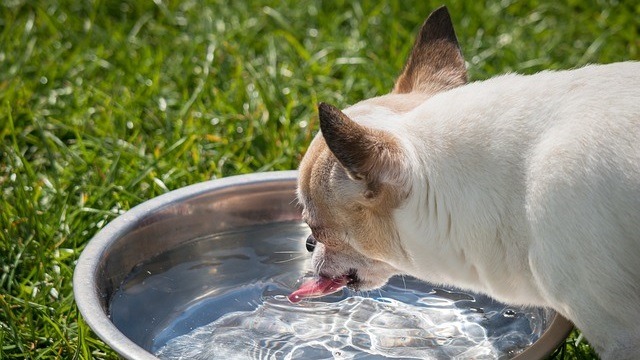
Dogs need to drink water more frequently when exercising to stay properly hydrated. The amount of water they need depends on various factors such as their size, activity level, and environmental conditions.
Dogs lose water when exercising through panting. As they pant, moisture evaporates from the tongue, helping to keep the body cool. Another route of moisture loss is through sweat glands on the paw pads.
As a general guideline, dogs should have access to water every 15-20 minutes during intense exercise. This helps to prevent dehydration and other health complications.
However, it’s also important not to allow your dog to drink too much water too quickly. This can lead to bloating and other digestive problems. Offer your dog small amounts of water on a regular basis, and monitor closely for signs of dehydration.

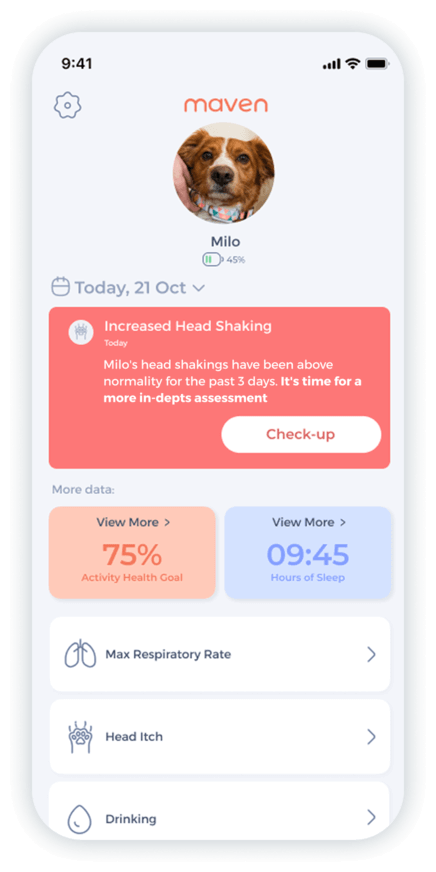
Monitor heart rate, respiratory rate, activity & rest, drinking, itch behavior.
If you’re worried that your dog doesn’t drink as much as you expected, Maven’s here to help! It tracks their water intake and notifies you if there are any unexpected variations. But if you notice any unusual or concerning symptoms, it’s always best to get them checked out.
Maven Pet focuses on improving the quality of life of our pets with technology, using artificial intelligence (AI) to enable proactive pet care. By accurately collecting and monitoring pet data 24/7 and flagging any irregularities, Maven Pet empowers pet parents and veterinarians to stay ahead of potential health issues, ensuring the well-being and longevity of our beloved companions.

